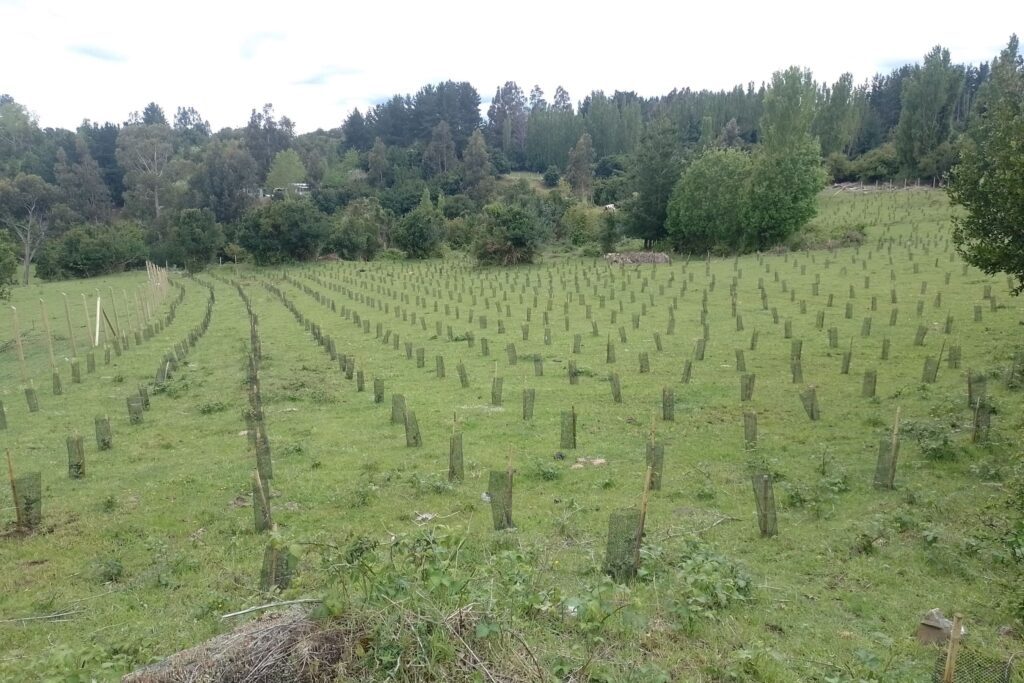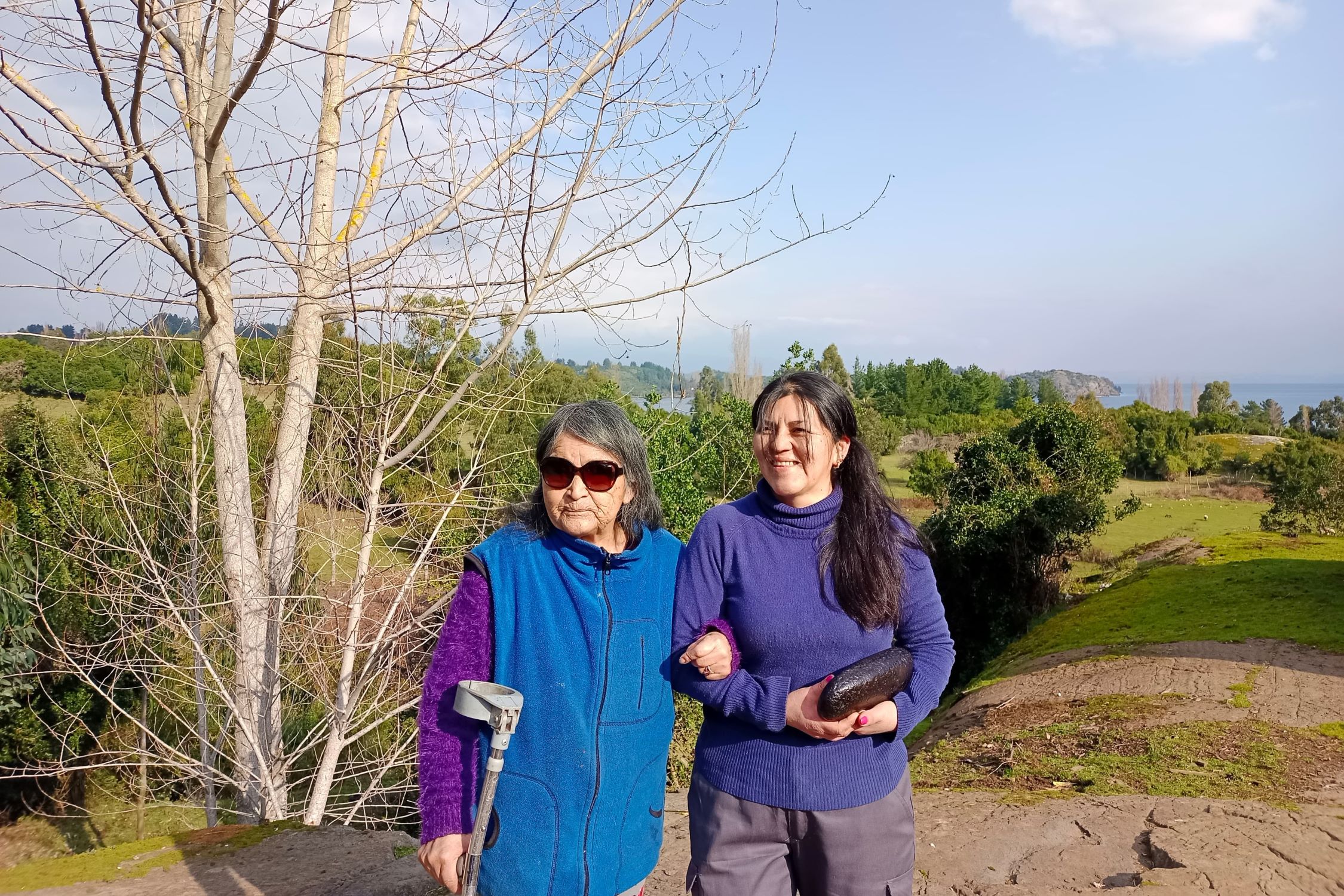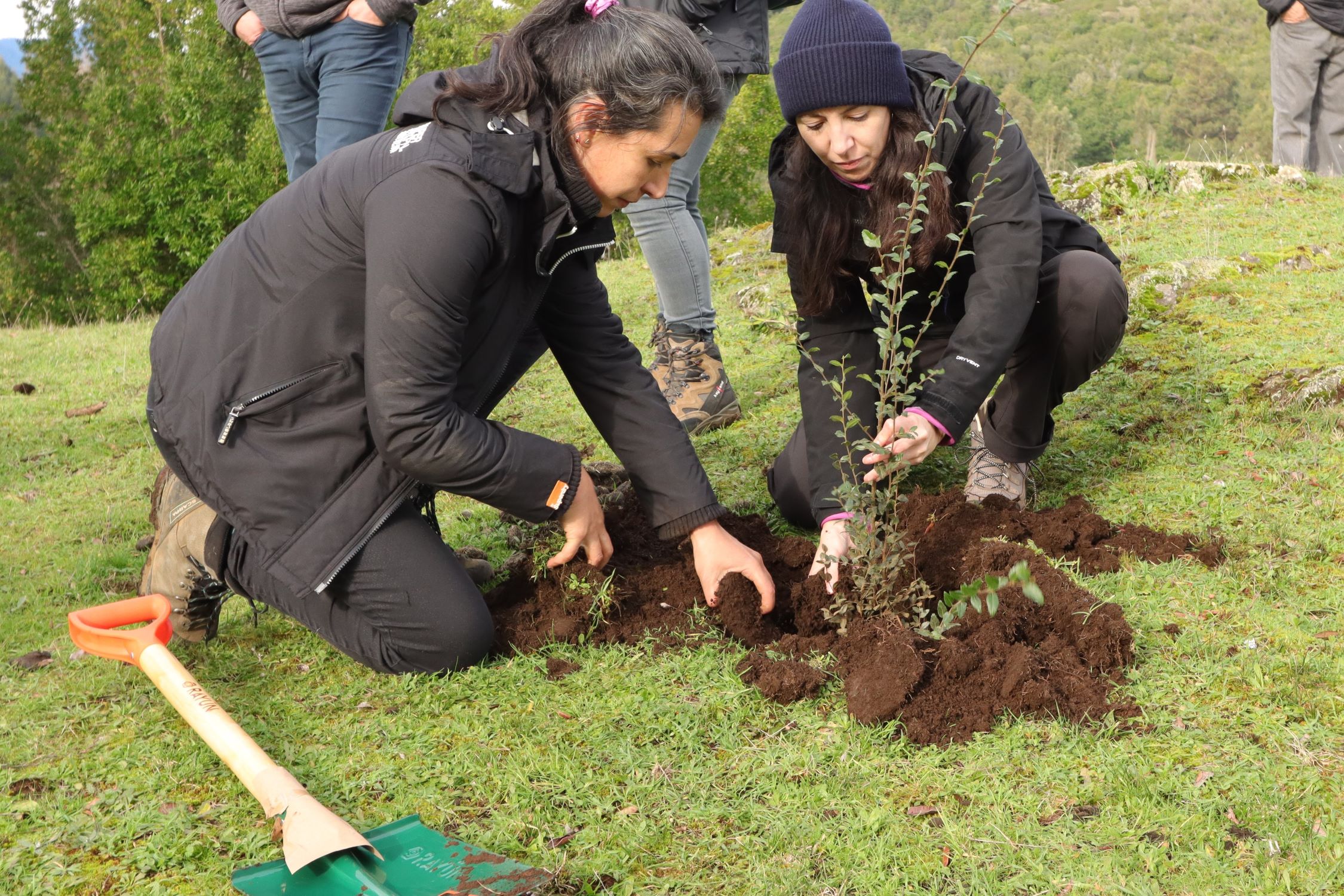
Mapuche Huilliche families are currently restoring eight hectares of the island’s forest. So far, over 800 similar initiatives are being implemented collaboratively by CONAF and FAO. © CONAF-FAO /Esteban Rivas
On a remote Chilean island at the centre of Lake Ranco south of the Andes, native trees are making a comeback thanks to the restoration efforts of Indigenous Peoples, like Anita Neguimán Antillanca.
Like other Mapuche Huilliche Indigenous Peoples on Huapi Island, she’s been planting fruit-bearing Chilean hazel (Gevuina hazelnut) and other native trees to preserve her way of life – and the traditional knowledge of her people, which has been passed down from generation to generation.
“My mother [Telma Antillanca] stressed she wanted this [hazel] tree species to be planted,” says Anita.
76-year-old Telma hasn’t given up hope that future generations will be able to maintain the deep connection her People have with the forest. “This is my mother’s dream, to see her ancestral land once again rich with native species,” explains Anita.

It will take a long time before the trees are big enough for her to collect the hazelnuts and roast them to make the flour that the Mapuche People consume as a warm beverage mixed with water, milk or apple cider. But what matters most to Telma is that these traditions will be passed down to future generations.
Telma’s hope for the future reflects the Mapuche Peoples’ respect for their food and knowledge systems, natural landmarks, as well as plant and animal life.
Each Mapuche family on Huapi Island decides how to use their land, a portion of which is often allocated to either livestock and agriculture or producing firewood to be used by the family or traded with others.
Traditionally, the forest is where Mapuche families collect prized supplies, from edible fruits and mushrooms to building materials. For example, they use the vines of the boqui plant (Boquila trifoliolata) to make crafts or weave baskets, collect wood from the boldo tree (Peumus boldus) to build fences, and pick wild-growing “maqui” berries (Aristotelia chilensis) – a superfruit packed with antioxidants.
The Government of Chile and FAO are working closely with Mapuche and other Indigenous Peoples to protect and restore native forests in a way that strengthens the resilience of the landscape and their livelihoods.
Mapuche Huilliche families are currently restoring eight hectares of the island’s forest; Anita hopes she’ll inspire others to do the same.

Unsustainable land use practices had transformed the island’s landscape from a forest filled with oak (Nothofagus obliqua), raulí (Nothofagus alpina), coihue (Nothofagus dombeyi) and laurel (Laurelia sempervirens) trees to isolated clusters in remote areas.
As the native forest became more fragmented, replaced by exotic species such as eucalyptus, the soils became poorer and drier, and the island and its population became more vulnerable to the effects of climate change. Changes in the forest also reduced the availability of water for drinking and irrigation.
Now, Anita and other families are bringing the rich variety of plant life back to their ancestral lands using native trees, like laurel, which have symbolic value to the Mapuche Huilliche people. It all started with an innovative project focused on restoring Chile’s forests.

Chile’s National Forestry Corporation (CONAF) and the Food and Agriculture Organization of the United Nations (FAO) have been collaborating on a Green Climate Fund (GCF)- financed project, which is implementing the country’s national policy to reduce greenhouse gas emissions and enhance climate resilience by restoring native trees.
Since 2021, the project, known as “+Bosques” – meaning “more forests” – has worked hand-in-hand with the Mapuche Huilliche People on the island to build fences that keep newly planted native trees safe from rabbits and other animals.
Like other beneficiaries of the project, Anita plants carefully produced and selected coihue, oak, laurel, Chilean hazel and lingue (Persea lingue) seedlings, nurturing them to ensure their survival.
So far, over 800 initiatives – like restoring Huapi island’s forests – are being implemented collaboratively by CONAF and FAO, in an inclusive and participatory way, guaranteeing that Indigenous Peoples’ rights, culture, knowledge and practices are respected and consistent with Indigenous Peoples’ right to free, prior and informed consent, recognised in the United Nations Declaration on the Rights of Indigenous Peoples.
Through the FAO-CONAF–GCF partnership, close to 14,000 hectares of native forests are being restored or sustainably managed in south-central Chile, directly benefiting over 2,000 Indigenous Peoples, including women like Anita, who are fighting for a more resilient future.
Source: The FAO News and Media Office, Rome
– global bihari bureau





